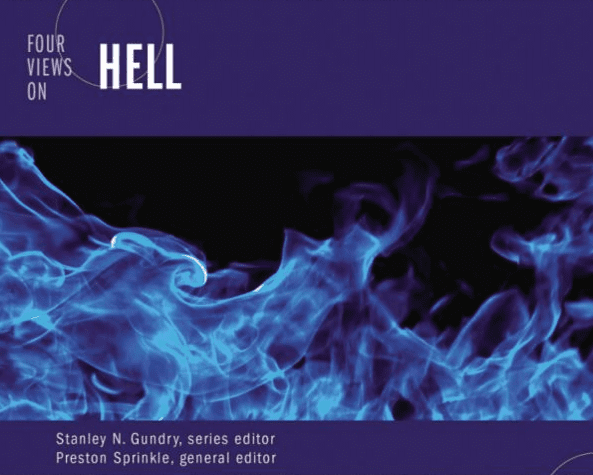 So what does orthodox theology say about “hell”? To answer this question we might want to ask another question, one that Tony Thiselton raises in his sketch of classic German liberal thinker: If love is a permanent feature of God, and wrath is not a permanent feature of God, then how can hell be eternal? Thiselton doesn’t really chase this idea down in his book Life after Death, but he does sketch the three major views of the early church.
So what does orthodox theology say about “hell”? To answer this question we might want to ask another question, one that Tony Thiselton raises in his sketch of classic German liberal thinker: If love is a permanent feature of God, and wrath is not a permanent feature of God, then how can hell be eternal? Thiselton doesn’t really chase this idea down in his book Life after Death, but he does sketch the three major views of the early church.
Relying on the well-known study of David Powys on hell and the afterlife (‘hell’: a Hard Look at a Hard Question), Thiselton observes that there were actually three views in the time when orthodoxy became fixed, and no one view dominated. The three are:
1. A vague form of annihilationism, perhaps connected to what is today called “conditional immortality,” namely, that only God is life, that immortality is a gift of God, that no one has immortality by nature, and that therefore the final state of the wicked is not immortality but destruction. Powys maps this view in Irenaeus, and he was connected to a widespread apostolic tradition.
2. Gregory of Nyssa taught a kind of universalism, namely one in which God’s love and life eventually overcomes all sin and wickedness and rebellion. All will be restored to their original state — that’s the view of Nyssa.
3. Augustine taught eternal, conscious torment. God raises unto punishment. Augustine was followed by Aquinas and Calvin and many.
Powys’ point is simpler: we should not equate Augustine’s view with the orthodox view of the church.
A question arises for Thiselton, and I can’t see that he resolves this one either: How can we conceive of God sustaining the life of all and be, at the same time, totally separate from the wicked?
Thiselton then sketches the biblical evidence, observing that the material about hell in the Gospels sometimes appears in parables (not always, not entirely, but mostly), that hell is not pervasive in the NT, that duration is not often taught, and that the point of the passages is the rhetorical function of moral exhortation and not revelation of what will happen. (Emphasis, yes; but this is a false dichotomy.)
Thiselton admits ignorance: some of what we want to know lies “beyond our horizons in the present” and they are designed to “summon us to responsibility” and we can “commit our uncertainties to God in his sovereign love” (158).











